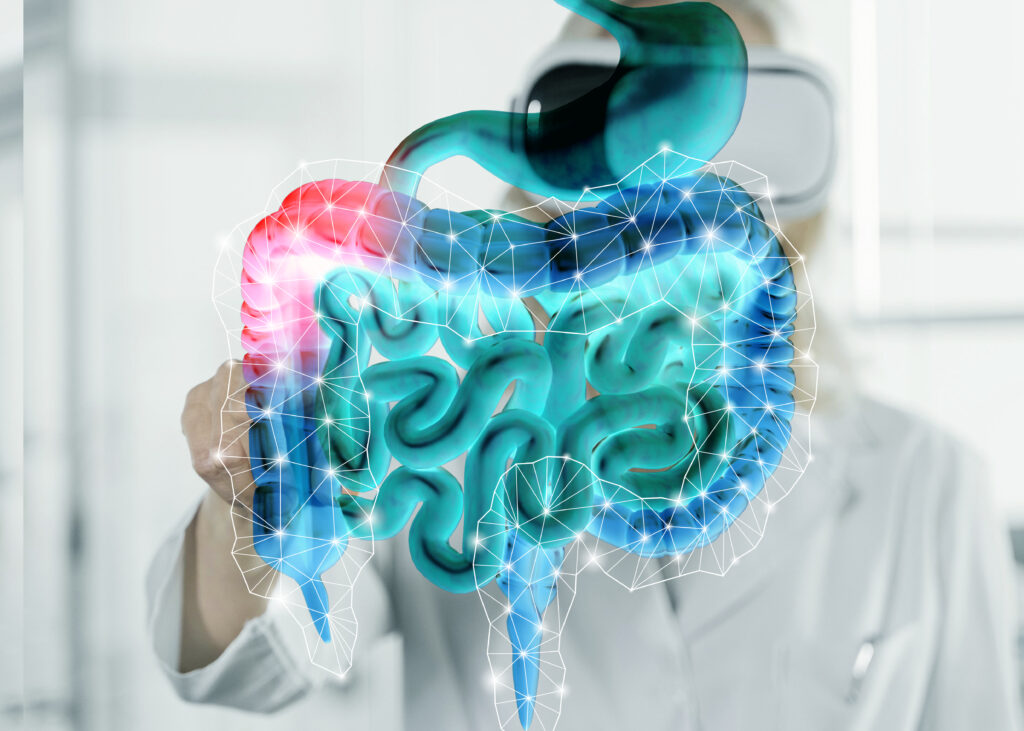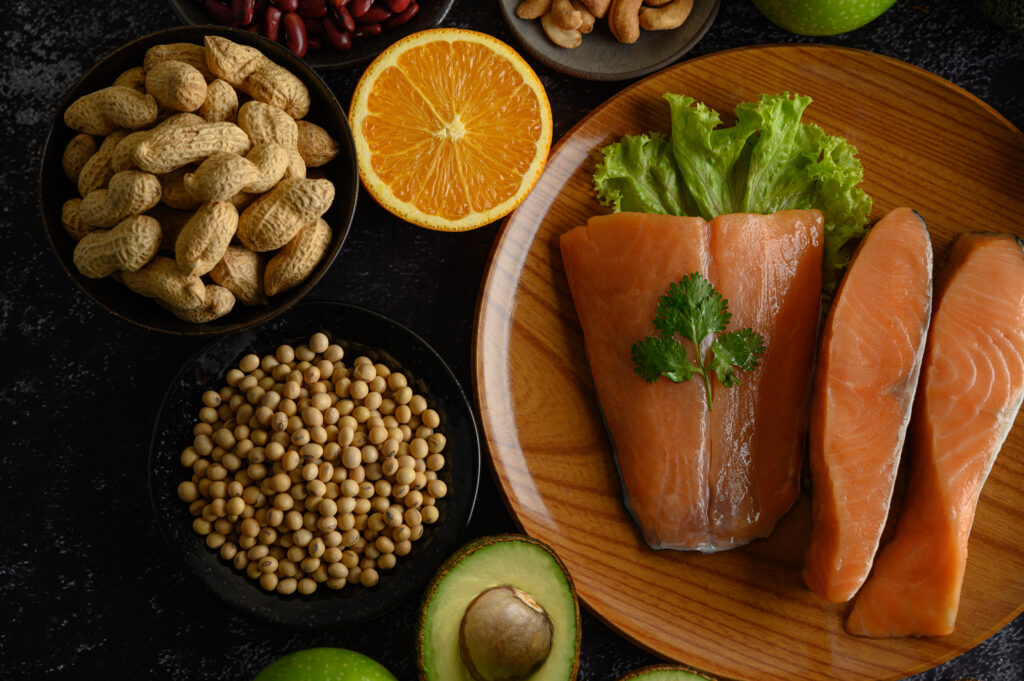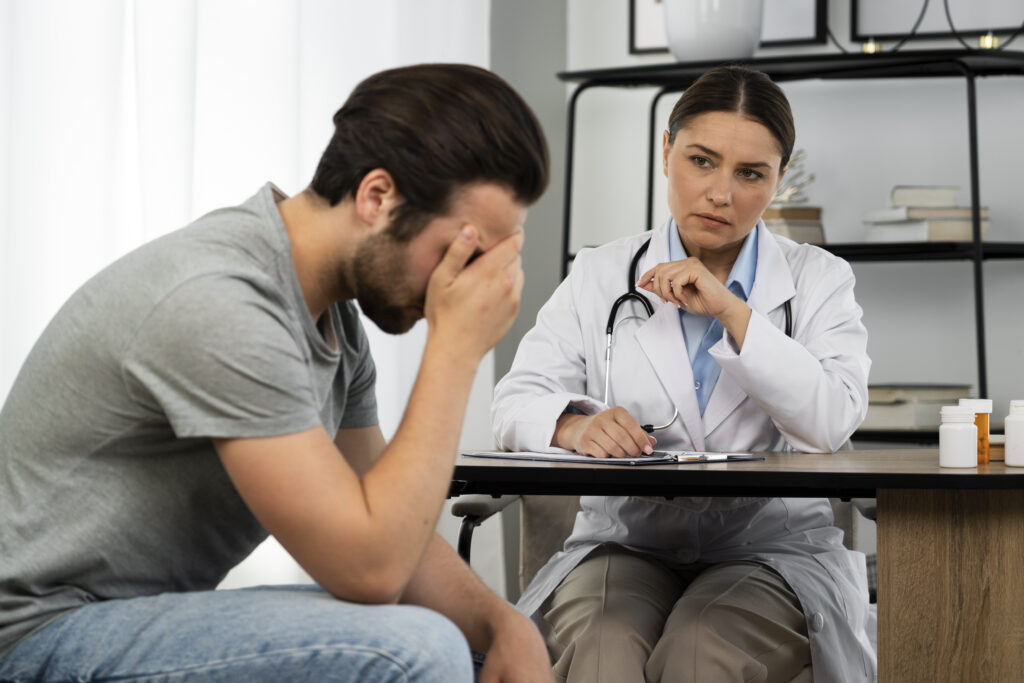Have you ever felt a sudden drowsy feeling that sneaks in after a hearty meal? This is not only with you, many people experience this tired feeling after taking amino acid and tryptophan high foods. Obviously you wonder about it and want to know what are the causes of this feeling. In this article we delve into the reasons and causes for this feeling and you will surely find your answer to the question “Why Do I Feel Tired After Eating?”
Understanding Post-Meal Fatigue
Feeling drowsiness or sleepy after having a meal is normal to some extent but in some cases the lethargy and reduced energy levels after meal go to a hazardous level known as postprandial fatigue. Larger carbohydrates are also the main cause of this drowsiness.
Physiological Factors
Feeling sleepy after taking a meal is considered normal in general but excessive tiredness may be disruptive for your daily chores. There are many physiological factors that influence your energy levels after a meal including digestive process and hormonal fluctuations. Let’s try to understand these factors comprehensively to shed light on “Why Do I Feel Tired After Eating?”
Digestive Processes
This is a common discussion that you need energy not only to run or walk but also for breathing or just exist and this energy you get from food. Simple taking in food doesn’t produce energy for you but it is a complex procedure of digestion that breaks the chemical bonds in foods and explodes energy for your body needs. Food is broken down into glucose that works as a fuel to run your body functions properly and some macro-nutrients like proteins assist your body by providing calories. Energy Diversion: Energy transformations during the digestion process occur repeatedly and a large amount of calories taken in as food are used for digestion of food. Thus energy level during food digestion varies from time to time at different phases of digestion. At start, potential energy stored in food is broken down to convert chemical energy into mechanical and thermal energy which are used by body systems to function and maintain body temperature respectively.
Energy Diversion: Energy transformations during the digestion process occur repeatedly and a large amount of calories taken in as food are used for digestion of food. Thus energy level during food digestion varies from time to time at different phases of digestion. At start, potential energy stored in food is broken down to convert chemical energy into mechanical and thermal energy which are used by body systems to function and maintain body temperature respectively.
Activation of Parasympathetic Nervous System: The complex sequence of events involved in the digestive process is also controlled by the parasympathetic nervous system. The Parasympathetic Nervous system ensures active digestion and optimal utilization of the nutrients consumed by you. PNS does this by increasing intestinal motility, enhancing essential enzyme secretion, activating digestive organs and promoting nutrient absorption.
Portion Size and Timing
It is a matter of high concern that the type and size of meal that you take plays a pivotal role in your energy levels disturbance and due to quality and quantity of food your digestive system is influenced which directly affects your energy level and you feel drowsiness or fatigue after meal. Carbohydrate rich meals, such as sugars and processed foods cause rapid spikes and subsequent crashes in blood sugar levels which is also a leading cause of lethargy and tiredness.
Overeating: Food that is rich in proteins, fibers and soluble fats are more useful and called a balanced diet. This type of meal sustains energy in your body and gives a feeling of satiety and taking small small portions but frequent meals at regular intervals may promote digestion. By taking small portion meals, you will help your gut to absorb minerals and vitamins more feasibly.
Late Meals: Timings of eating and digestion are closely related because the body has an internal clock that regulates the body’s different processes including digestion and eating at regular timings can synchronize your body functions with food absorption. Hence energy production is promoted successfully.
Similarly, hormones that regulate hunger or appetite such as Ghrelin and Leptin are also affected by timing of meals. So eating at proper timings can enhance hormone production and prevent overeating as well.
Lifestyle and Behavioral Factors
Large or heavy meals cause feelings of laziness and sleepiness. Moreover foods rich in carbohydrates and fats greatly impact energy levels after taking a meal. Eating near to bed time has a drastic impact on energy levels and causes severe fatigue issues in the body. Eating frequently and speedily causes improper digestion and makes the absorption of food difficult. So our behavior and lifestyle greatly influences our energy levels after eating.
Eating Habits
Eating habits directly affect your digestive system and everyone needs different amounts of food to feel satisfied but eating too much can cause harm to your digestive system. Continuous or fast eating may cause bloating while too much less eating or being under-nutrition will cause acidity in your stomach and lead towards stomach ulcers.
Speed of Eating: Slower eating helps you to feel full soon. It is also suggested by the doctors to keep your eating speed slow, it will save you from elevated blood pressure, high blood sugar level and excessive bloating. You can minimize the risk factors of obesity, gastritis and diabetes by avoiding fast eating. Mindful Eating: In- the moment awareness about your food and drink is referred to as mindful eating. Mindful eating is actually the observance of taste and effects of the food that you eat. If you feel tired after eating then practice a mindful eating habit, it will help your digestion process and in return your post-meal fatigue may be reduced.
Mindful Eating: In- the moment awareness about your food and drink is referred to as mindful eating. Mindful eating is actually the observance of taste and effects of the food that you eat. If you feel tired after eating then practice a mindful eating habit, it will help your digestion process and in return your post-meal fatigue may be reduced.
Physical Activity and Post-Meal Fatigue
Post-meal slumps can be minimized by including physical activity in your daily routine and multiple researches has proven that regular exercise increases the healthy digestion of food which as a result enhances your energy production in your body to limit the feeling of tiredness after eating.
Effects on Digestion and Energy Levels: Sedentary lifestyle doesn’t create energy reserves so you don’t have enough energy to push through your days while being active and doing exercise will make you alert and boost up your metabolism rate so that your efficiency and cognitive abilities may be improved through better digestion and increased energy levels as well.
Timing of Exercises Relative to Meals: Exercise is a good thing to improve the efficiency of digestive system but timing of exercise matters a lot in this regard because if you eat too much before a workout it will cause discomfort for you in the form of stomach bloating, nausea and drowsiness. Always keep in mind that your food contains simple food i.e. a banana or an apple or a smoothie with a butternut or it may be a boiled egg. Try To avoid taking a heavy meal 50 to 60 minutes before a workout because pre-workout meals have a direct impact on digestion and post-meal fatigue.
Digestive Disorders Many underlying health issues cause tiredness after eating and play a vital role in inducing laziness or lethargy after taking a meal. Anemia, low blood pressure, celiac disease, gastroparesis and irritable bowel syndrome are some ailments that take great part in causing post-meal fatigue. Some of these health issues are discussed here with their remedies and preventive measures.
Many underlying health issues cause tiredness after eating and play a vital role in inducing laziness or lethargy after taking a meal. Anemia, low blood pressure, celiac disease, gastroparesis and irritable bowel syndrome are some ailments that take great part in causing post-meal fatigue. Some of these health issues are discussed here with their remedies and preventive measures.
Irritable Bowel Syndrome(IBS): Most of the people with (IBS) feel exhaustion and fatigue because irritable bowel syndrome is the leading cause of anemia i.e. blood deficiency in your body. (IBS) also affects the functioning of the thyroid, which releases some important hormones to control our metabolism. Negative impacts on metabolism harms the energy production thus causing tiredness after eating. So avoid poor eating and under-eating because malnutrition is the leading cause of (IBS). Take a balanced diet to limit the risk factors.
Gastroparesis: It is the type of indigestion or difficulty in proper digestion of food. Frequent vomit is its major symptom and due to frequent and excessive vomiting, esophagus damage resists complete food digestion. In this case the patient feels weakness and dehydration. Some medicines and a balanced diet will help you to get rid of this disease.
Celiac Disease: In this disease the immune system is disturbed due to many factors and poor performance of the immune system leads you towards fatigue and lethargy feeling. Gastrointestinal problems, diarrhea, constipation and bloating are some other hazards of celiac disease. Gluten food is abandoned for patients with celiac disease.
Strategies for Managing Post-Meal Fatigue
It is a fact that post-meal fatigue is a common occurrence and 80 to 90 percent people experience tiredness after eating from time to time in their life span so don’t take it too much serious but if this condition sustains for a longer time period and starting causing difficulties in your routine life, then it’s time to take preventive measures on strong basis. Here are some strategies to combat with post-meal fatigue;
Stay Hydrated: To compete with the feeling of drowsiness and tiredness after eating, you should have enough water in your body. Being hydrated can help you to limit the factors supporting fatigue after meals. According to studies, 6 to 8 glasses of water must be drunk a day by a healthy person because all body systems including digestive and metabolic systems need enough water to function properly. Stop using beverages and alcoholic drinks to avoid dehydration.
Manage Stress: Stress affects your stomach and digestive system badly. People with stress always complain of losing hunger and can’t eat properly. This loss of appetite directly affects their energy levels and induces feelings of tiredness. Include some stress managing techniques in your routine like yoga, meditation. Mindful eating and deep breathing exercises. Blanched Diet: Include fresh fruits, vegetables, lentils, lean proteins and healthy fats with plenty of water in your daily diet. Balanced diet can increase your metabolic rate to enhance the energy production in your body.
Blanched Diet: Include fresh fruits, vegetables, lentils, lean proteins and healthy fats with plenty of water in your daily diet. Balanced diet can increase your metabolic rate to enhance the energy production in your body.
Regular Exercise: At least 25 to 30 minutes of mild or moderate-intensity exercise must be part of your daily routine. Regular exercise can support your metabolism and digestive process, this will result in an increase of your energy currency of the body which will give you a boost after taking meals. Thus you will defeat that lazy feeling of Why I Feel Tired After Eating?
Balanced Meal Planning
Food is the major source of energy for the body. The functioning of the body depends on what you eat and eating a healthy diet with smaller portions will be useful for getting maximum energy from food but the food containing processed items or heavy fats must be avoided. This practice will boost your energy level and help in maintaining body weight.  Including Nutrient-Rich Food: Have you ever noticed how much tired you feel after taking a heavy lunch or dinner? Keep your diet healthy and balanced by including nutrients in the correct proportion. Foods containing oil, fats, spices and processed junk items will ruin your health and cause health issues related to your different body organs. It is wise to include fresh fruits, seasonal vegetables, unprocessed foods, whole grains, nuts, seeds, vitamins and supplements to your diet and avoid carbonated drinks, junk food and alcoholic or caffeinated drinks.
Including Nutrient-Rich Food: Have you ever noticed how much tired you feel after taking a heavy lunch or dinner? Keep your diet healthy and balanced by including nutrients in the correct proportion. Foods containing oil, fats, spices and processed junk items will ruin your health and cause health issues related to your different body organs. It is wise to include fresh fruits, seasonal vegetables, unprocessed foods, whole grains, nuts, seeds, vitamins and supplements to your diet and avoid carbonated drinks, junk food and alcoholic or caffeinated drinks.
Controlling Portion Sizes: Eat smaller portioned meals to avoid post-meal fatigue. Nutritionists believe that some energy drinks or a cup of coffee may make you feel high energy levels in times of low energy but this food is dangerous for your gut health and causes more tiredness than before. So take healthy and small portioned food to improve food digestion and control your fatigue.
Conclusion
Identifying Underlying Health Issues: By understanding the above mentioned factors affecting the energy levels after eating, you are able to take steps for the improvement of your energy levels and to boost your metabolism for gaining regular and continuous energy to keep yourself alert and active throughout the day. Feeling tired after eating? No doubt it is a general feeling for the majority but by adopting good eating habits and an improved lifestyle, you can minimize its impacts. You are now able to get to the point that feeling tired after eating is not an inevitable consequence of meals, just listen to your body, take a balanced diet, include physical activity to your routine and practice stress managing techniques to feel vibrant after every meal. Consulting with Healthcare Professionals: In case of persistent symptoms of tiredness you should consult a healthcare professional to diagnose if there is any serious health issue other than the general ones. If post-meal fatigue interferes with your daily routine and disturbs your life sustaining activities accompanied with gain in body weight, body aches and low cognitive abilities, it’s time to speak to your doctor for the treatment.
Consulting with Healthcare Professionals: In case of persistent symptoms of tiredness you should consult a healthcare professional to diagnose if there is any serious health issue other than the general ones. If post-meal fatigue interferes with your daily routine and disturbs your life sustaining activities accompanied with gain in body weight, body aches and low cognitive abilities, it’s time to speak to your doctor for the treatment.







